Every new blockbuster movie gets its own series of hot takes. The bigger the movie, the higher the number of think pieces explaining how what we all just watched either failed or served women, minorities, or whatever viewpoint the particular writer is advocating. They definitely don't make them any bigger than Avengers: Endgame, a movie I quite enjoyed. Naturally, the hot takes are starting to pile up.
This is just what the internet does with movies now: we use them as proxies for whatever larger social issue or injustice we're passionate about. The more passionate we are about it the better off we'll be since the digital age of journalism economically incentivizes outrage.
However, when argued in good faith this can also be an entirely meaningful form of critical interaction. For example, I'd argue that without the cultural commentators and fans constantly criticizing the Marvel Cinematic Universe's long-standing lack of diversity we probably don't get Endgame 's casual introduction of a gay character or girl power moment during the final battle where all the female characters team-up to escort Captain Marvel across the battlefield.
Of course, now both of those moments have been criticized and written off as pandering. Elsewhere, those advocating for a body-positive superhero haven't taken kindly to the film's treatment of "fat Thor."
Let's dig into all of that as well as some of the other Endgame criticisms.
(Note: I'm setting all of the time travel-related criticisms aside since I already discussed that in an earlier article.)
Black Widow's Death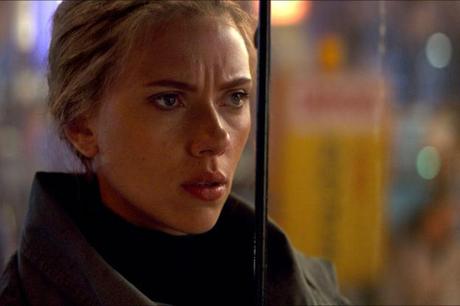
Response: A lot of Endgame criticisms seem to stem from a considerable amount of built-up frustration - frustration over the way these movies have overtaken pop culture, waiting 11 years to see the MCU diversify and then being asked to applaud half-steps, too many many movies about white dudes named Chris, and the continued filtering of everything through a male point of view since outside of Captain Marvel and the first Guardians of the Galaxy not a single female character in this universe has uttered a line of dialogue written by a woman.
As the once-token female member of the Avengers, Black Widow has often been at the center of this frustration. Forced into the unenviable role of representing her entire gender, Black Widow - or more accurately the way male filmmakers chose to utilize her - often fell short in critic's eyes and became a symbol for why Hollywood's bullshit attempts at feminism ring hollow if they aren't met with a true female voice. Some, for example, still haven't forgiven Joss Whedon for his Age of Ultron storyline where Natasha describes undergoing a sterilization procedure as part of her spy training, tears up, and asks love interest Bruce Banner, "Still think you're the only monster on the team?"
For whatever that exchange was trying to say about a woman's view of her ability - or lack thereof - to give birth, it did at least speak to one consistent truth about Natasha: her mission is one of atonement. Only in Age of Ultron does she ever sway from that mission, but her hopes of a happy ending with Bruce were dashed for good. Ever since then, her goals have been to keep the family together. That certainly informs her decision to initially back the Sokovia Accords in Civil War, andan early Endgame scene has her reiterate this larger goal as a precursor to her ultimate sacrifice.
In retrospect, any character who says anything along the lines "I would do anything to get them back" - which Black Widow more or less does - probably isn't long for this world, meaning her sacrifice shouldn't come as a surprise. Yet, it does because we've been told she's getting her own movie. Scarlett Johansson is not someone like Chris Evans or Robert Downey, Jr. thought to be looking for a way out of the MCU.
Moreover, it was just last year that we watched Gamora die in that very same spot under vaguely similar circumstances, the primary difference being her death was involuntary while Widow's is voluntary. Surely the filmmakers wouldn't go to that well again and certainly not just to save Hawkeye, everyone's least favorite Avenger.
Yet, that's exactly what they did, framing Black Widow's death as her ultimate moment of triumph. She actively fights for her right to self-sacrifice on behalf of the entire team, with such selflessness more than atoning for any of the bad she ever did as a spy pre-SHIELD.
The problem is this is a big ass movie with a superhero roster nearly 30 people high. Everyone is jockeying for screen time, and they're all due to come up short since Endgame is ultimately a movie about Iron Man and Captain America. Only Thor and Nebula also end up with plenty of screen time and their own meaty character arcs. Black Widow's death thus ends up feeling like just one of the many, many things to happen in the movie. She's all but forgotten by the time Tony Stark's funeral rolls around. Instead, she gets the Quicksilver death treatment - shock, mourn, quickly move in.
It's a rather sudden end for the woman who kept some facsimile of the Avengers together for 5 years while the dudes around her got to either fall apart (Thor, Hawkeye), move on (Hulk, Iron Man), or settle into depression (Captain America). I understand why the writers and directors thought this made sense, but as the sole female Avenger for so long Black Widow meant a lot to some audiences. She's the one my niece always played as, and even now that Captain Marvel is here losing Black Widow still made her cry. The Endgame filmmakers might have underestimated that type of impact. The possibility of this storyline being undone in Black Widow's own movie might explain why.
Disney is the Real Thanos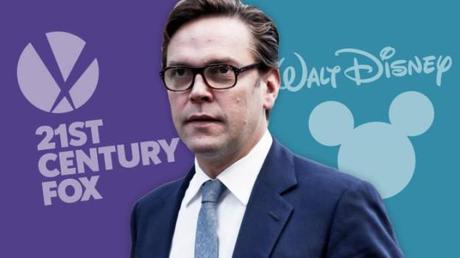
Response: Sanders was actually referencing a Twitter thread in which Abigail Disney, the granddaughter of company co-founder Roy E. Disney, persuasively argued Iger's extreme compensation is an especially objectionable example of the widening wealth gap between America's corporate class and working class. Given Sanders' proudly Socialist views, this dovetails nicely with his political messaging.
While I understand the impulse, I think politicians need to stop glomming on to the latest pop culture obsession of the moment to make their point. See also Elizabeth Warren's essay conflating Cersei Lannister on Game of Thrones with modern day authoritarian regimes. It inevitably comes off like an overeager grade school teacher determined to "make history fun" or someone who can't respect our collective need to at least occasionally use movies and TV shows to escape from today's all-consuming political news cycle.
This particular example, however, points to a larger concern, one which I partially spelled out in my spoiler-free discussion of Endgame. What Disney is currently doing to the entertainment industry is a level of consolidation and market dominance we've never seen before. For anyone with a remote interest in smaller movies or a less than favorable view of truly unregulated capitalism, Disney's Galactus-like swallowing of the film industry isn't exactly something to be praised. Literally, thousands of Fox employees are now out of a job because of Disney's acquisition, for example.
At the same time, like it or hate it, Bob Iger came along and looked at an industry which historically sought profitability through volume - releasing as many movies as possible in the hopes that those that hit will wipe out the losses from the flops - and recognized the higher rewards of only ever making four-quadrant, IP-dependent blockbusters. He turned away from an inefficient model and steered his company toward historic profits. Don't hate the player, hate the game?
The industry is undergoing a revolutionary change, and at the end of the day, it's going to come down to Disney vs. Silicon Valley, most likely just Netflix but maybe also Apple. It's understandable to feel apprehensive about this, which means Avengers: Endgame, like so much else about popular culture, comes with a dark underbelly. I don't begrudge anyone wanting to point that out, but there's also an element of, "Can't we just have this to purely enjoy as fans for a minute, please?"
Fat Thor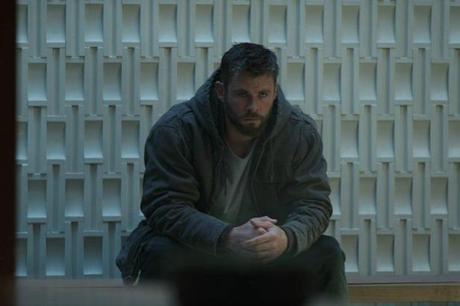
Plus, Medium has one with a far more aggressive point of view:
Response: Endgame is a movie about loss, or at least that's what it starts out as. In revisiting the Infinity War survivors five years later, we see an almost clinical readout of the different ways to cope with grief. Some find salvation in work (Black Widow), others through acceptance and making the best of the rest of their life (Hulk, Iron Man), and yet others try to fill the hole inside of them with food, drink, or worse. Picking Thor to represent the latter is guaranteed to get the biggest laughs because it's the least expected. After 8 years of Chris Hemsworth's obligatory shirtless scenes, we know full well what an Adonis he is. (Heck, Infinity War has a running joke about his swoleness.) To see him look any different is a legit shock.
Yet, it makes sense. Infinity War sees Thor hanging on by a thread. In the span of at most a few weeks, he's lost his home, father, best friend, brother, hammer, and most of the people he was meant to rule and protect. Getting revenge was the only thing keeping him going. Failing in that effort broke him for good, in a way he'd never been broken before in his ultra-long life.
Thus, fat Thor. It is a logical character choice, and while a good talk from mom eventually sets him right emotionally the physical toll is never undone. He carries all of his extra weight into the final fight with Thanos. His lightning powers might be able to magically braid his beard, but it can't wash away the pounds.
The criticism is that Endgame takes all of this too far. Either due to Hemsworth's increasingly comically-inclined performance or Christopher Markus and Stephen McFeely's scripting, there are an awful lot of fat jokes throughout. Moments before the climactic fight scene, for example, the script is still lobbing fat jokes his way, with War Machine making a "cheese wiz" crack when Thor references what is flowing through his veins.
However, it's not as if the other Avengers simply regard him as a fat cartoon to mock. His obvious emotional distress is treated as something they all recognize but don't totally know what to do with given their time constraints. So, the film tries to walk the thin line between laughing at Thor's predicament and empathizing with it. In so doing, it wades into the murky waters of fatsuit comedy, an arena which touches a nerve with certain audiences scarred by the likes of The Nutty Professor, Shallow Hal, and Madea.
Personally, I thought the film was successful in pulling off this balancing act, successfully transitioning from comedy to tragedy in just the one scene where Thor cartoonishly describes the events of The Dark World and then sadly breaks down when he realizes how much he's lost in his life since those days. I don't think the film intends to categorically mock fat people; it's more reveling in Thor's totally unexpected physical transformation. Others obviously disagree.
The Girl Power Scene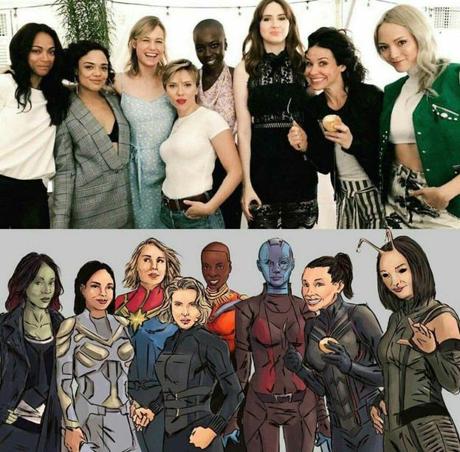
Response: The writers of Endgame, Markus and McFeely, were very aware of that interpretation, but just enjoyed the moment too much to cut it. It is absolutely pandering on their part, but isn't that kind of thing allowed in the splash-page battle finale to 11 years of storytelling?
Again, this has little to do with the moment itself - although the internal logic of it is certainly shaky - and more to do with the reality that most of the women in the scene have never even talked to each other on-screen before and certainly haven't been given the opportunity to carry their own superhero movie. Just Captain Marvel and Wasp have seen their names on the marquee of an MCU title. So, to group them in a Girl Power moment can certainly ring as hollow.
Why not choose to think of it differently, though? Instead of a pandering attempt to make-up for undeserving female characters for so long why not look at this as a potential preview of things to come? There's no reason Phase 4 can't include a Valkyrie movie or Lady Liberators team-up. This scene doesn't have to be a "how dare they"; it can be a preview of what's on the way.
Endgame is the end to 11 years of storytelling, and not all of those years have been great for female representation. So, the film's Girl Power moment was perhaps destined to fail with some audiences. That doesn't mean the scene isn't still a powerful bit of feminist iconography or that Phase IV can't do a better job at this, especially with Captain Marvel here and on her way to a sequel, Angelina Jolie headlining an Eternals movie, and Black Widow about to get a big solo movie payday.
The MCU's First Gay Character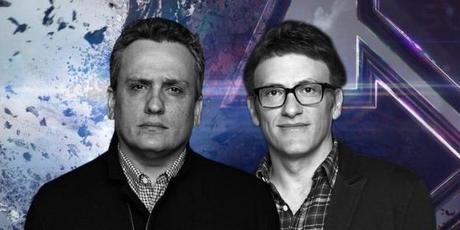
Response: If Joe and Anthony Russo had stayed silent and simply let this scene speak for itself, maybe fans would have felt differently. Certainly, if Joe hadn't felt compelled to actually put himself in the movie and play the gay character in question, maybe fans would be more receptive. However, there's been a certain back-patting element to the way the Russos have framed this in the press which has contributed to the criticism.
Otherwise, this isn't about Endgame. Instead, this is about a representation-starved audience which has grown tired of "next time" or "it's about damn time" promises. It's on the filmmakers and studios to listen and figure out how to respond. When a giant, Disney-funded blockbuster casually introduces a gay character and the LGBTQ community isn't impressed, that means something.
That is, however, if the vocal critics truly represent the LGBTQ community. I don't know if they do. I don't know how many people out there really object to this most consequential of inconsequential Endgame moments. From a pragmatic standpoint, I stand impressed that they snuck this in there full well knowing they were making something meant to play everywhere in the world, including those countries whose censors wouldn't look kindly on such a scene. For some, that's little comfort, just more of the same reasoning for why they still struggle to see themselves represented on screen.
What do you think? Do you have your own hot take to offer? Disagree with any of my reactions or the original hot takes I quoted? Do you just wish we would stop saying "hot take"? Or are you in the "it's just a movie" camp and think everyone takes all of this way too seriously these days? Let me know in the comments.
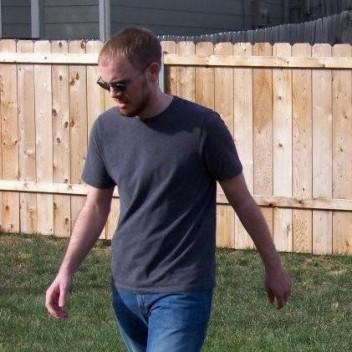
Grew up obsessing over movies and TV shows. Worked in a video store. Minored in film at college because my college didn't offer a film major. Worked in academia for a while. Have been freelance writing and running this blog since 2013. View all posts by Kelly Konda

